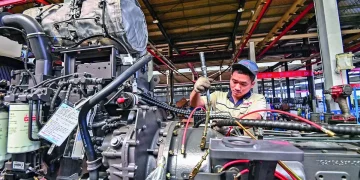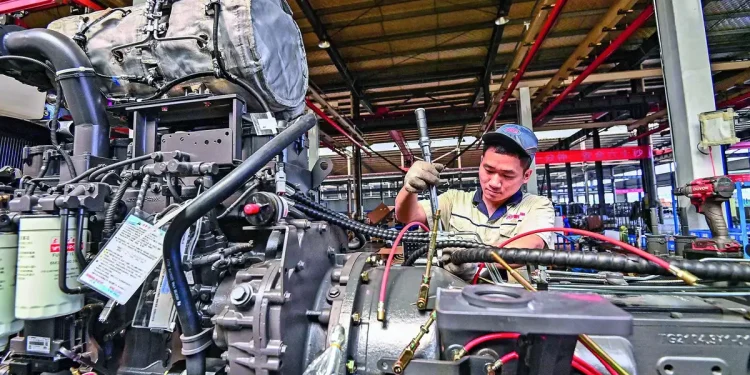By Maria Kalamatas | July 23, 2025
Section: International / Economics & Manufacturing Trends
Beijing, July 23 — The Chinese government is preparing a targeted campaign to reduce excess capacity in heavy industries, aiming to counter persistent deflationary trends and curb damaging price wars that have weighed on producers.
“Unchecked price competition hurts every layer of the economy, from factories to workers,” a senior trade official said, indicating that regulators are shifting toward tighter production controls.
Industry-wide restructuring ahead
Beijing is expected to impose capacity limits across sectors such as steel, cement, and glass, echoing reforms introduced nearly a decade ago that successfully stabilized factory-gate prices after a prolonged slump.
“Balancing output with real demand is the priority,” said a government adviser. “The challenge is to stabilize prices without triggering a sharp slowdown.”
Pushback from local regions
Some provincial authorities, heavily dependent on industrial jobs, are expected to resist closures or mergers. Analysts warn that mixed cooperation at the local level could slow the central government’s plans.
“Local governments want stability in employment, which complicates the path to industrial reform,” noted one economist familiar with the talks.
Global ripple effects
Tighter Chinese production could soften demand for raw materials like iron ore and coal, potentially easing global commodity prices. International manufacturers sourcing from China will also be watching closely for any shifts in supply and pricing.
“Reducing excess output gives breathing space to global markets as well,” said a metals trader based in Singapore.
Looking forward
While supply-side measures are taking shape, economists stress that stronger consumer demand will also be essential if China hopes to fully counter deflation and sustain growth through late 2025.























